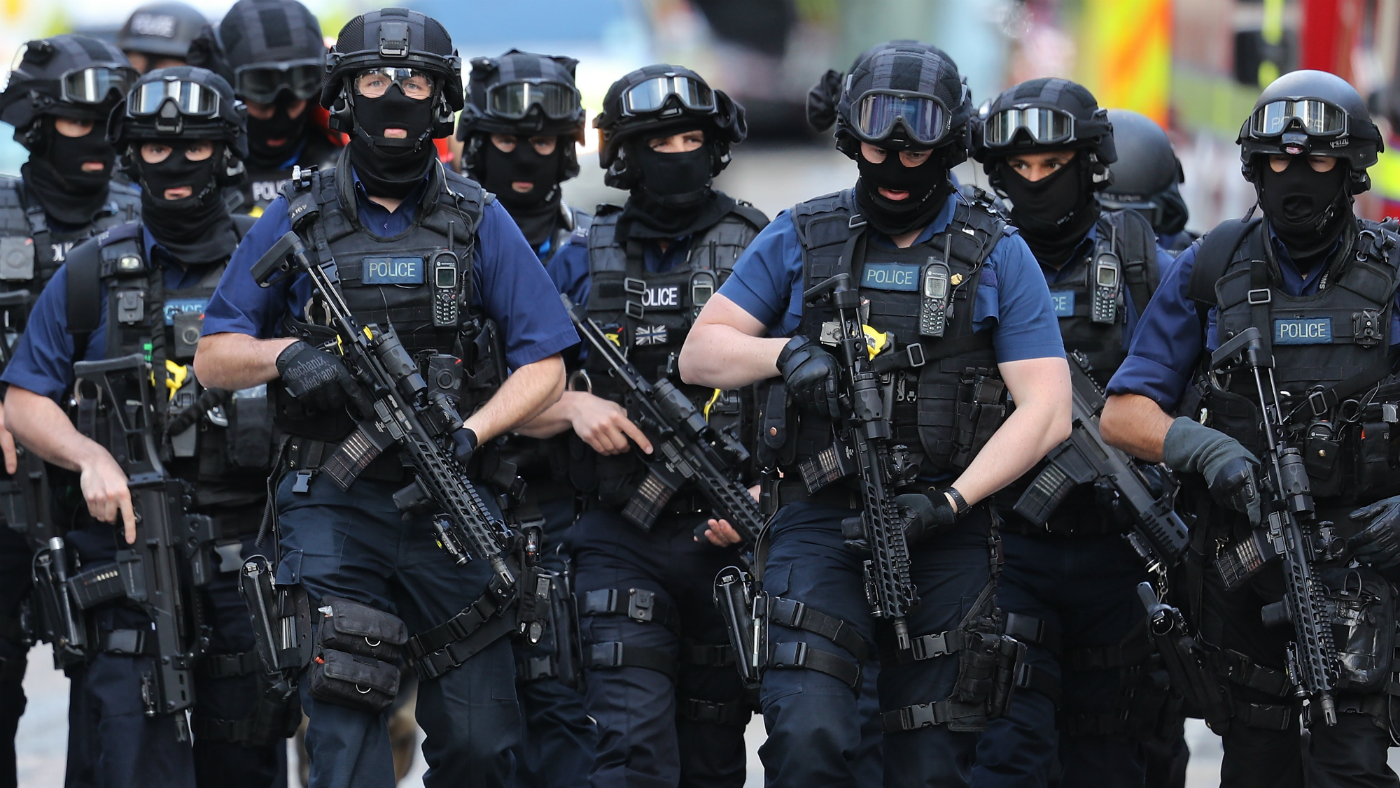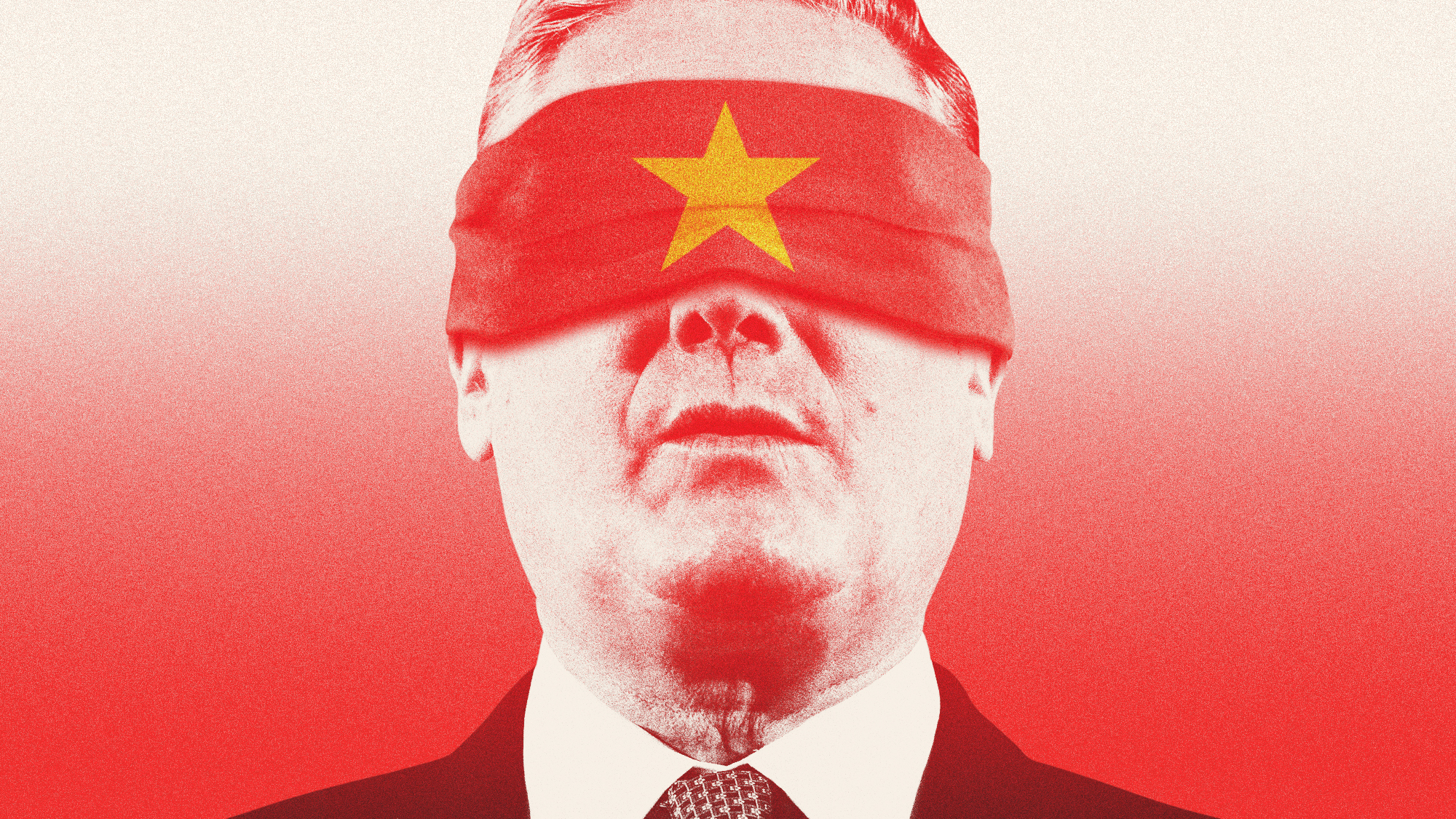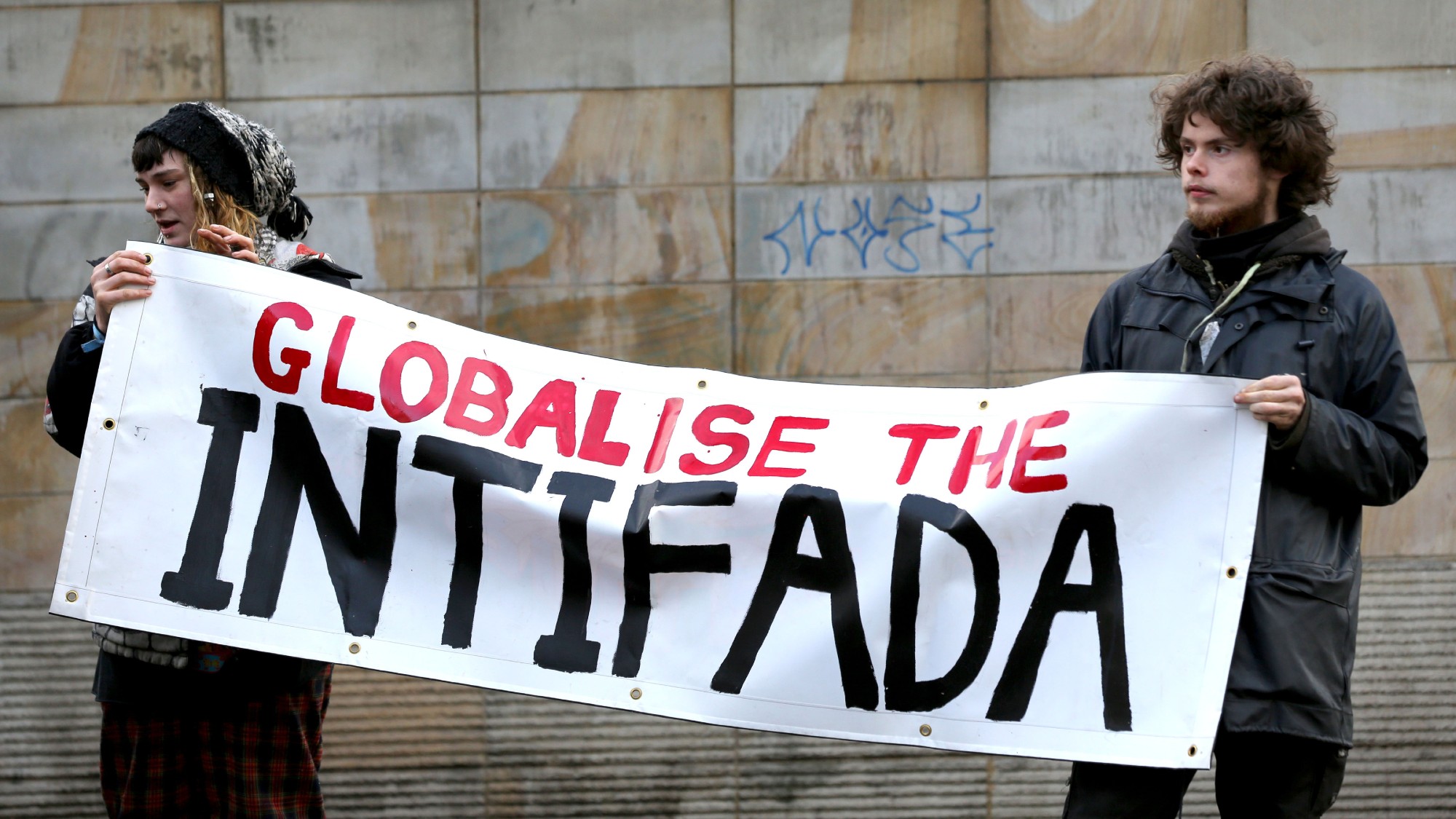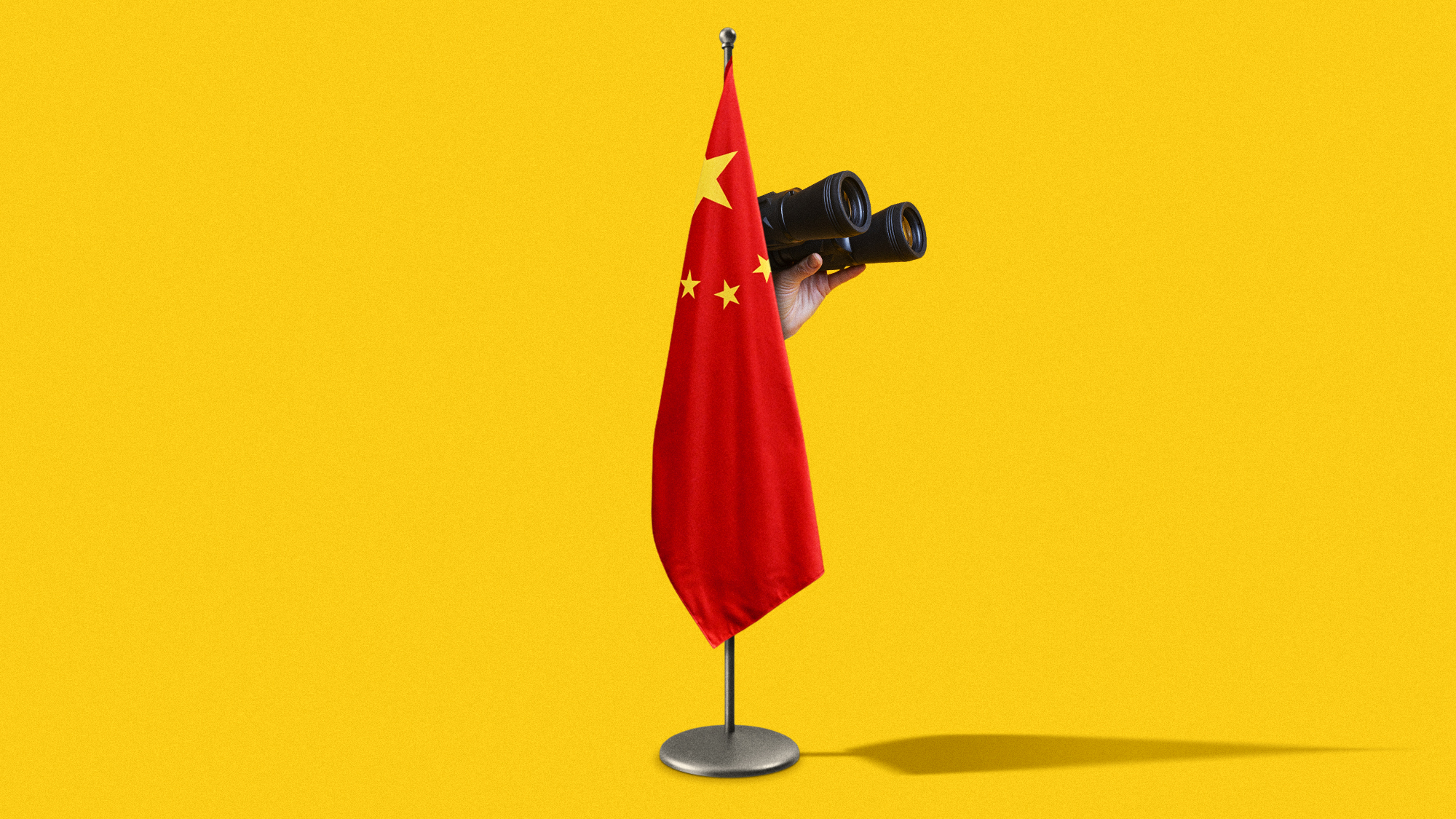Election manifestos 2017: Parties compared on security and terror policies
Terror attacks dominate the election campaign. Here's what the three main camps promise

A free daily email with the biggest news stories of the day – and the best features from TheWeek.com
You are now subscribed
Your newsletter sign-up was successful
After three major terror attacks in as many months, this week's general election could be decided on the issue of security.
Theresa May says Jeremy Corbyn cannot be trusted to keep the UK safe, while he has called on her to resign for failing to prevent a rise in terror during her time as home secretary and cutting police numbers by 20,000 while in office.
So how have the three main parties promised to target terrorism in their election manifestos and on the campaign trail?
The Week
Escape your echo chamber. Get the facts behind the news, plus analysis from multiple perspectives.

Sign up for The Week's Free Newsletters
From our morning news briefing to a weekly Good News Newsletter, get the best of The Week delivered directly to your inbox.
From our morning news briefing to a weekly Good News Newsletter, get the best of The Week delivered directly to your inbox.
Policing
May said existing policy means the number of armed police officers is set to return to 2010 levels after falling in the intervening years. Culture Secretary Karen Bradley said yesterday falling police numbers had been a financial necessity, but added: "It's not just about numbers, it's about powers." The Tory manifesto makes no mention of police numbers but promises to accelerate recruitment procedures.
Labour has pledged to recruit 10,000 more officers to work on community beats in its manifesto. It also says it will change stop-and-search practice which "mean you are still far more likely to be stopped and searched as a black or Asian man".
All frontline officers will be required to wear body cameras while on duty if the Liberal Democrats are elected, although many already do. The party's manifesto says it will set aside an additional £300m for community policing in England and Wales each year.
A free daily email with the biggest news stories of the day – and the best features from TheWeek.com
Security services
In its uncosted manifesto, the Conservative Party pledges to create a "national infrastructure police" force to protect "nuclear sites, railways and the strategic road network". It will unite three existing police forces, although it is not clear if it will involve additional recruitment. Home Secretary Amber Rudd said she is already hiring 1,900 extra staff for MI5 and will raise the security budget by £4bn by 2020.
Labour says it will recruit 1,000 more security and intelligence staff and 500 more border guards. It also promises to support the security services, but says their powers must remain subject to judicial oversight and be "proportionate and necessary".
The Lib Dems, who have promised a second referendum on Brexit, have put the emphasis on cross-border cooperation with European security services, with leader Tim Farron calling on the government to publish a "buried" report on the foreign funding of terrorism, The Guardian says.
Tackling terror online
The Lib Dems and the Tories have taken the strongest lines on this issue – in opposition to each other.
May's immediate reaction to Saturday's London Bridge terror attacks was to demand internet tech companies take responsibility for extremist content. Her remarks were taken as calling for the firms to open up end-to-end encryption to the security services.
Farron warned yesterday that any clampdown on "safe spaces" online risked eroding civil liberties, The Guardian reports. He said: "If we turn the internet into a tool for censorship and surveillance, the terrorists will have won. We won't make ourselves safer by making ourselves less free."
Labour's manifesto promises to include the threat of online radicalism as part of a strategic defence and security review if it wins the 8 June election.
-
 Corruption: The spy sheikh and the president
Corruption: The spy sheikh and the presidentFeature Trump is at the center of another scandal
-
 Putin’s shadow war
Putin’s shadow warFeature The Kremlin is waging a campaign of sabotage and subversion against Ukraine’s allies in the West
-
 Media: Why did Bezos gut ‘The Washington Post’?
Media: Why did Bezos gut ‘The Washington Post’?Feature Possibilities include to curry favor with Trump or to try to end financial losses
-
 How corrupt is the UK?
How corrupt is the UK?The Explainer Decline in standards ‘risks becoming a defining feature of our political culture’ as Britain falls to lowest ever score on global index
-
 The high street: Britain’s next political battleground?
The high street: Britain’s next political battleground?In the Spotlight Mass closure of shops and influx of organised crime are fuelling voter anger, and offer an opening for Reform UK
-
 Biggest political break-ups and make-ups of 2025
Biggest political break-ups and make-ups of 2025The Explainer From Trump and Musk to the UK and the EU, Christmas wouldn’t be Christmas without a round-up of the year’s relationship drama
-
 Is Keir Starmer being hoodwinked by China?
Is Keir Starmer being hoodwinked by China?Today's Big Question PM’s attempt to separate politics and security from trade and business is ‘naïve’
-
 What is the global intifada?
What is the global intifada?The Explainer Police have arrested two people over controversial ‘globalise the intifada’ chants
-
 Is a Reform-Tory pact becoming more likely?
Is a Reform-Tory pact becoming more likely?Today’s Big Question Nigel Farage’s party is ahead in the polls but still falls well short of a Commons majority, while Conservatives are still losing MPs to Reform
-
 The launch of Your Party: how it could work
The launch of Your Party: how it could workThe Explainer Despite landmark decisions made over the party’s makeup at their first conference, core frustrations are ‘likely to only intensify in the near-future’
-
 Who are China’s Westminster spies?
Who are China’s Westminster spies?The Explainer MI5 warns of civilian ‘headhunters’ trying to ‘cultivate’ close contacts of MPs and peers